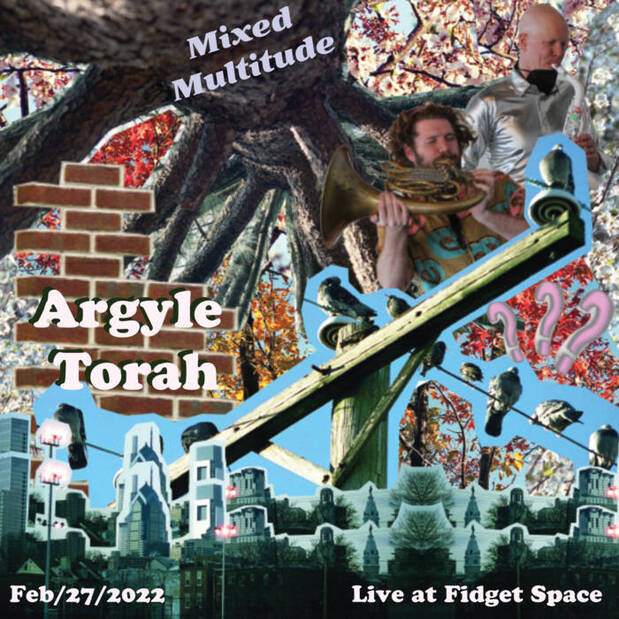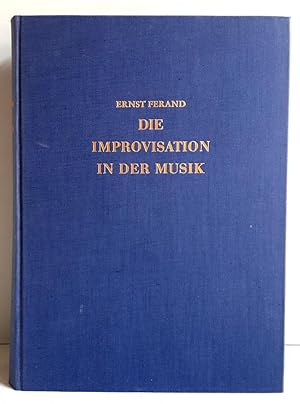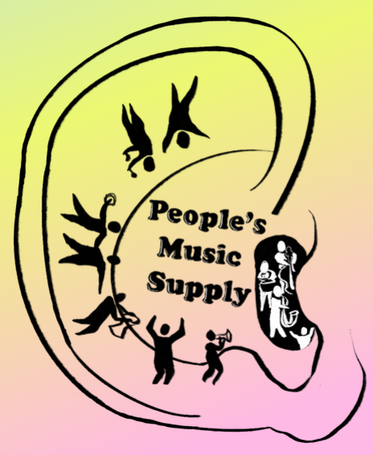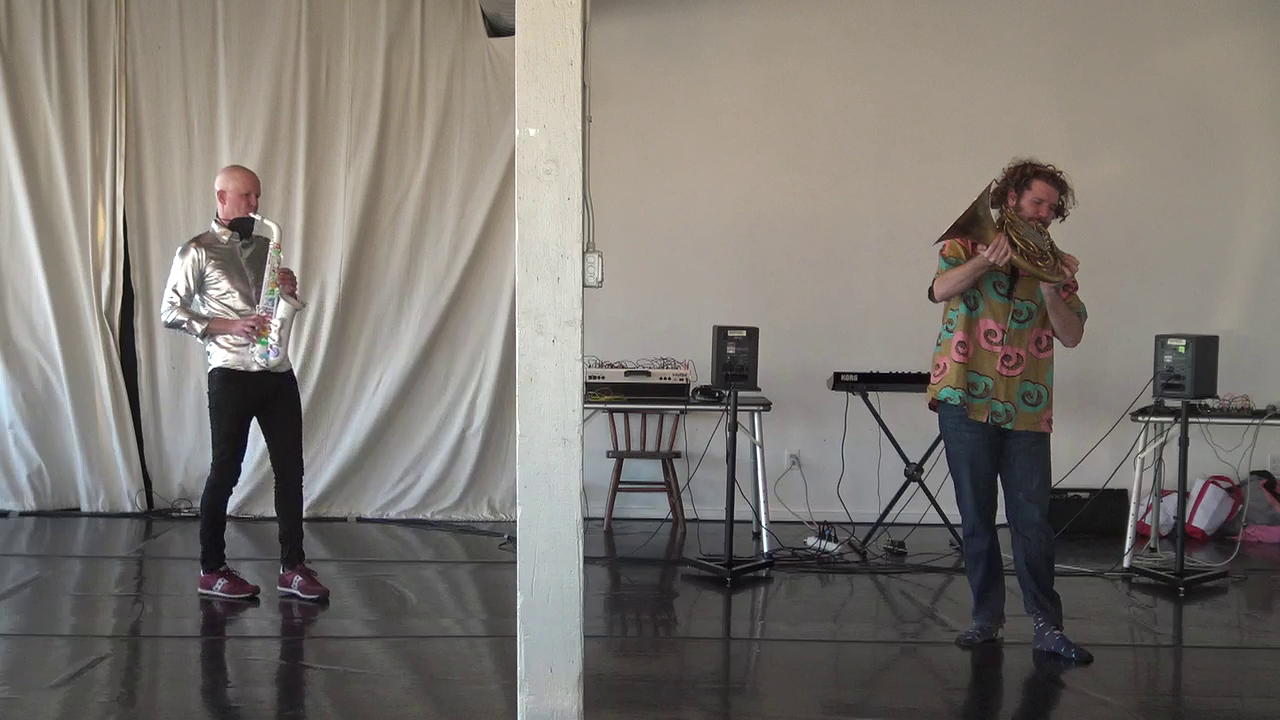|
In January 2023, I started a weekly open improvisation session at the community space known as the Rotunda in West Philadelphia. Over the past year and a half, these sessions have grown into a self-sustained, unpredictable, and generative musical community. You can read more about them thanks to this article by Thomas Hagen in the Broad Street Review.
I'm working on a translation of a book called Die Improvisation in der Musik (Improvisation in Music), published in German in 1938 by the Hungarian musicologist Ernst Ferand. The book is widely regarded as the only in-depth history of improvisation in European classical music-- although, interestingly, its historical coverage extends only to circa 1600. (The fact that the book is still over 400 pages long gives you an idea of its thoroughness.)
This a major project that will take several years and I believe this book, when available to a broader readership, will change the way we think about improvisation and music history. The translation will be published by Routledge as part of their series Classic European Studies in the Science of Music. I'm pleased to announce that Deirdre Loughridge and I will be writing a book version of our long-running website project, the Museum of Imaginary Musical Instruments. This will involve organizing the instruments into new, conceptually organized chapters, as well as conducting new research and adding some new instruments to the collection! The book will be published by Reaktion Books in London.
I am delighted to announce the launch of People's Music Supply, a platform for creative music-making and community-building that builds on the amazing work of my friend and colleague Aaron Pond. Please check out our website to see what we're up to!
Many years ago (in 2009), I started a music blog called Acousmata to document my musical interests and investigations as they then existed, and to have an outlet to help me survive the hothouse of graduate school. That lasted until 2013, when work and family duties, combined with a general sense of things having run their course, led me to stop posting. Ten years later, and with a new sense of musical reality influenced primarily by my deepening engagement with creative music and non-European traditions, I'm back at it with a new music blog called Possible Music.
The purpose of Possible Music is simple: to cleanse the doors of musical perception and prepare our selves for the higher potentialities of human existence that shimmer through the best music. Mostly I'll be posting links to recordings with some commentary, but I'll also be sharing other forms of content as well (images, texts, poetry, random musings).  Argyle Torah, my duo project with multi-instrumentalist Aaron Pond, has released its first album: Mixed Multitude, a live recording of our recent concert performance at Fidget Space in Philadelphia. This performance felt somewhat miraculous. We had played a short set the night before that we agreed was mediocre. Then, the next day, slightly frazzled and without having practiced in the meantime, we summoned this continuous 40-minute set-- twice as long as anything we had done before-- which seemed to take its own shape, like fluid poured into a vessel. Although we had practiced intensively in the weeks leading up to the performance, we had not "rehearsed" anything resembling what you hear in the recording. In addition, this was our first public appearance with an expanded array of instruments, expanding from our original voice-and-electronics format. We knew this performance was going to be a stretch, but we didn't know it would feel like a quantum leap to a new state of musical being. I should also mention that this recording is taken from the middle of a three-hour performance, the outer parts of which took the form of an open-format jam session. For the entire duration, the musicians were joined by improvising dancers, and the energy we exchanged with them transfigured the event into something ritualistic and otherworldly. I love the title that Aaron chose for this album. The image of the "Mixed Multitude," which nicely captures the smorgasbordal vibes of our performance, also has powerful political resonance at this moment of reactionary appeals to purity and order. It is as a mixed multitude that we will survive, or not at all. Three of my translations from German have recently been published. The first two, "On the Function of Timbre in Music" by Theodor Adorno and "On the Theory of Instrumentation" by Carl Dahlhaus, were prepared for the Oxford Handbook of Timbre, which can be read in hard copy and at Oxford Handbooks Online. The other is a short piece titled "On Cybernetic Music" by composer Roland Kayn, which appeared in Spectres III, part of a series published by the Groupe de recherches musicales.
Another big translation project may be in the works, but for now it remains top secret! I've been working with the lovely people at Alter Ego Chamber Opera to create electronic music sound designs for their upcoming production of Alcina REVAMPED, a new English adaptation of the 18th-century opera Alcina by Georg Friedrich Handel. I created a handful of modular synthesizer patches that were heard during transitions between scenes. You can hear three snippets of these patches-in-progress below. I'm excited to announce I'll be teaching a new course, "Improvisation in Theory and Practice," at the Curtis Institute in spring of 2022. The course will combine historical studies of improvisation in the jazz and European classical traditions with workshop sessions in which students will learn some basic techniques and approaches to musical improvisation. We'll be joined for a number of sessions by DM Hotep, a composer and guitarist who has performed with the Sun Ra Arkestra for over 20 years.
The Woodmere Art Museum in Philadelphia recently published the catalogue for their 2020–21 exhibit Sam Feinstein, Group '55, and Midcentury Abstraction in Philadelphia, and I wrote a short essay on the three composers associated with the modernist collective Group '55: George Rochberg, Vincent Persichetti, and Joseph Castaldo.
|
Archives
July 2024
Categories
All
|





 RSS Feed
RSS Feed
